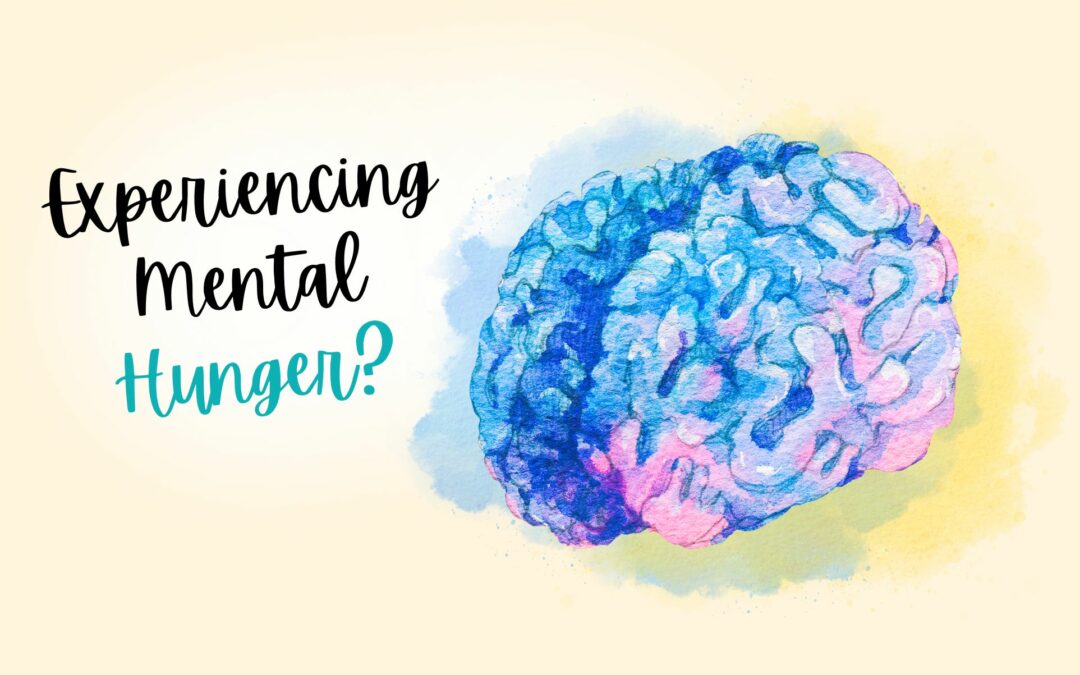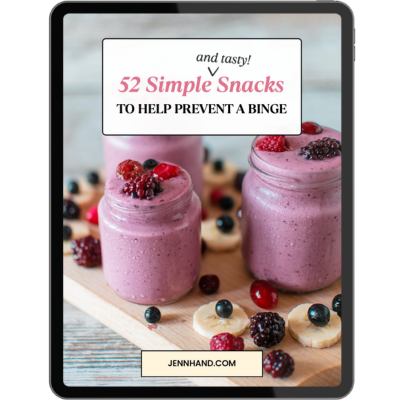Written by Jenn Hand, Holistic Nutritionist, Board Certified Health Coach, NBC-HWC
What Is Mental Hunger?
Mental hunger is the desire for food for a non-physical reason.
I like to think of mental hunger as a “red flag” from our body–it’s a sign to go deeper to explore what’s going on underneath the yearning to eat.
Why do we get mental hunger?
We can feel mental hunger for a variety of reasons.
For many people, it can be related to emotions. If we turn to food for comfort, to ease stress, to soothe pain, to escape a hard day, or any other emotional reason, the desire to eat can strike if we’re facing something challenging.
Additionally, mental hunger can happen when we’re being too restrictive with our food. The more we tell ourselves we can’t have something, the more we think about it.
If I tell you NOT to think about a pink elephant, what do you immediately think about? The darn elephant! It’s the same with telling yourself you can NOT eat bread. The more you tell yourself you can’t, the more you want it.
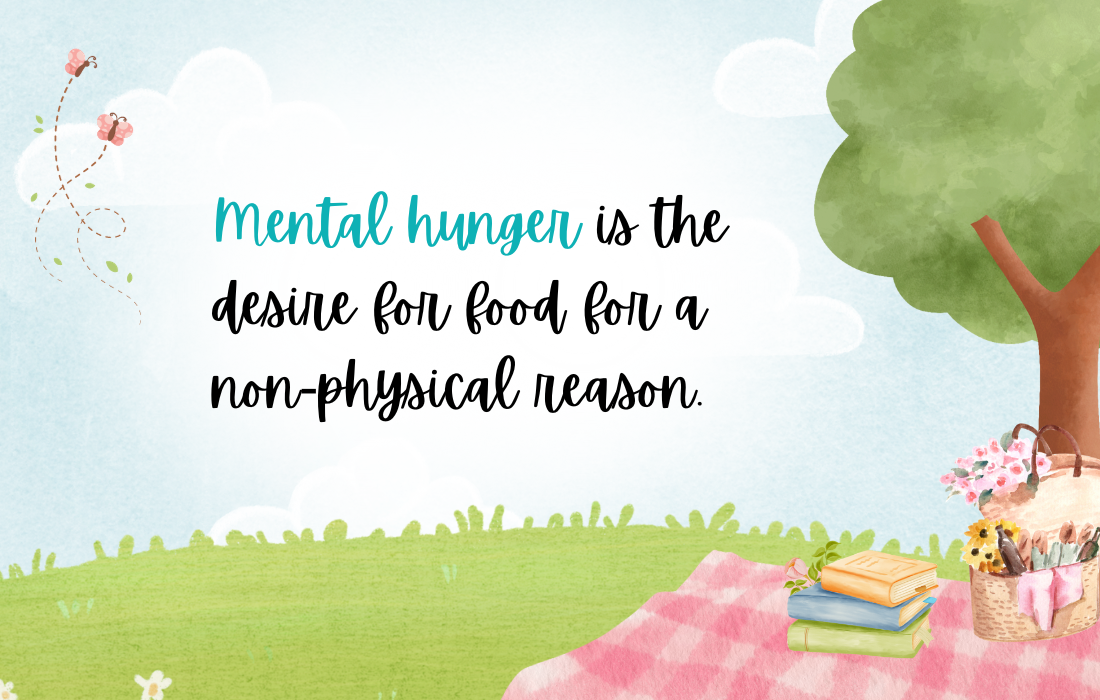
What is the difference between hunger and mental hunger?
One of the biggest differences between physical hunger and mental hunger is the “need.”
With physical hunger, our bodies need fuel.
Just like a car needs gas to operate, our bodies need a certain amount of food to do everything the body does (circulate blood, move around, breathe, produce hormones, communicate with cells, etc).
Physical hunger occurs when we’ve gone a few hours without eating and the body signals a need for energy.
With mental hunger, it is a nagging thought or craving that can’t be satisfied by eating. If we eat food for mental hunger, that desire is never really satisfied and we’re usually left wanting more. This can lead to overeating or binge eating.
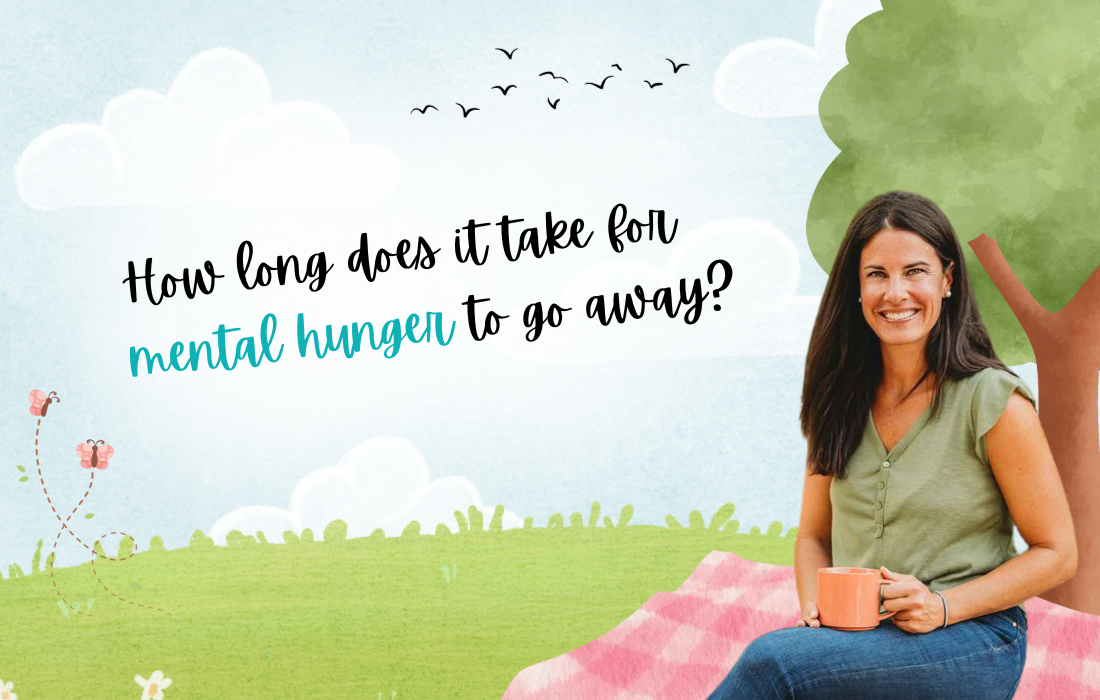
How long does it take for mental hunger to go away?
It depends on why we feel the mental hunger!
Oftentimes, if we yearn for food to take away or deal with something emotional, the mental hunger can last as long as we are trying to escape the feeling. For example, if you’re overwhelmed from the day’s to-do’s, feel tapped out emotionally, exhausted from work or managing life, the mental hunger might last until we don’t feel stressed out anymore.
You can work through mind hunger and explore what’s beneath it, so you address the “real” issue instead of turning to food over it.
How do you overcome mind hunger?
Mental hunger can be overcome by examining what is below the desire for food.
Here are a few journalling or reflection prompts to help you explore what’s below the surface:
- Are you restricting any food or following strict rules?
- Are you eating enough?
- Do you feel satisfied with what you’re eating during the day?
- What are you feeling that you don’t know how to (or want to) feel?
- HALT: Are you Hungry, Angry, Lonely or Tired? (This was my favorite acronym to help realize WHY I wanted to eat!)
- How are you REALLY feeling?
- Are you stressed out about something in your life?
- What are you hoping the food will do for you?
Read More:
🌷How to Comfort Yourself without Food
🌷How to Stop Overeating at Night
Work with a Emotional Eating & Holistic Nutrition Coach
Overcome Bingeing and Emotional Eating, and Break Up with Yo-yo Dieting
Working with a emotional eating coach and holistic nutritionist can help you get free from the frustrating binge and restrict cycle and stop yo-yo dieting.
You don’t have to be obsessed with food or have a million rules around eating to find your natural weight and learn to love your body. Ready to actually see a lasting change and experience true freedom?
Schedule a 20-min CallAbout the Author:
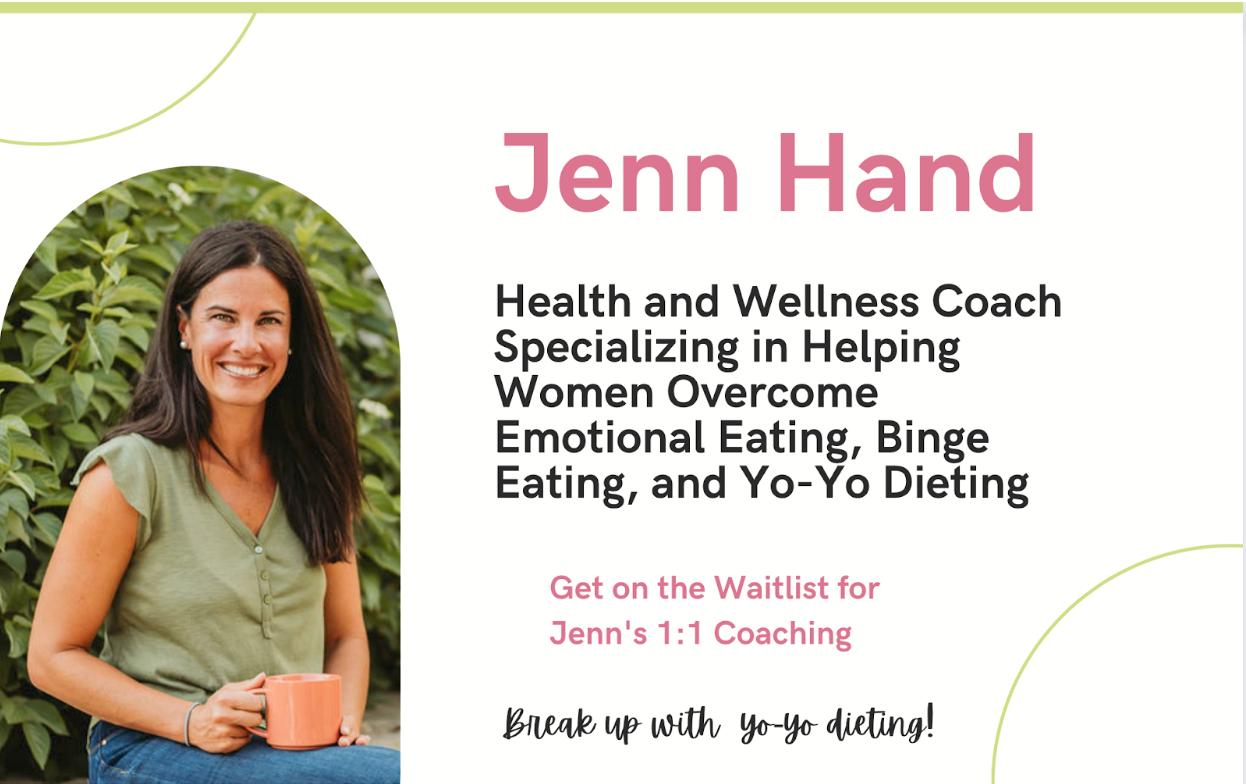
Jenn Hand has been helping women like you become normal eaters since 2015.
She’s worked with thousands of women, helping them to balance their bodies, end bingeing, stop obsessing over food, and start feeling amazing again. As a board-certified health coach and holistic nutritionist, Jenn knows how to support you in making real positive changes that last.
Her articles have been published on Mind Body Green, Tiny Buddha, Thrive Global and other local and global media platforms. She’s the author of How to Be a Normal Eater and the creator of The Normal Eater’s Club program. Listen to Jenn’s advice and tips on the Cake Doesn’t Count Podcast, or read more of her articles for free on the Food Freedom Blog.
Learn About Coaching!
